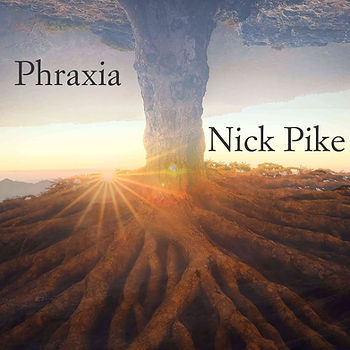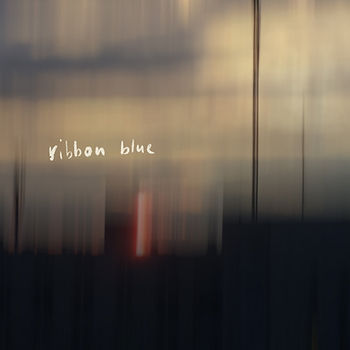
Nick Pike returns with Phraxia, his third studio album, following the textural richness of Norastoria and the soothing atmospheres of Evergreen. This new release presents a more nuanced evolution of his neoclassical voice—a sonic landscape where solo piano takes center stage, delicately intertwined with shimmering electronic textures and ambient washes.
Comprising ten tracks, Phraxia is an album rooted in emotional storytelling through sound. It doesn’t aim to dazzle with virtuosic gestures but instead pulls the listener into an intimate world of sentiment, memory, and atmosphere. Each piece feels like a self-contained short story or a distilled emotion—ten different states of mind captured and transformed into music. The overarching tone is reflective, but not uniform; Pike plays with contrasts of texture and mood, much like an impressionist painter working with subtle shifts of light and color.
Perception of music is very subjective and the feeling it creates depends on the listener, but let me tell you about my own feelings and the scenes I experienced listening to “Phraxia”:
“Whispertide” opens the journey with a soft-focus dreamlike quality. It’s music for floating—delicate, distant, and warm. Like drifting through a fog of memory, it soothes while also hinting at something just out of reach.
“Abaluna” feels lunar and celestial, a moment of night-time contemplation. Imagine lying beneath a clear sky, watching comet showers arc across the silence. There’s a stillness here, an inner calm that remains unbroken.
The title track, “Phraxia,” leans gently into nostalgia—not the kind burdened with sorrow, but a playful kind of looking back. There’s a sense of gentle reflection, like revisiting a fond childhood place now half-forgotten but still full of warmth.
“Aroha” expands the sonic space. It evokes an image of cosmic drift, a kind of weightless wandering through stars. It’s the kind of solitude that feels liberating—a pleasant feeling of getting lost.
“Deepward Glow” shifts us to earthier feelings. Walking alone through quiet night time streets comes to mind—melancholic, introspective, but with a subtle glow of hope. The piece gradually opens into light, turning what begins in solitude into something uplifting.
Then comes the “Für Beethoven”—a thoughtful, imaginative reimagining of Für Elise. Rather than merely quoting or ornamenting Beethoven’s theme, Pike transforms it. He plays with harmonic substitution and phrasing, pulling the familiar melody into his own neoclassical language. It’s a brilliant concept, not only in name but in execution. Both homage and innovation, it’s a teaching piece, a narrative piece, and an emotional one all at once. And it made me feel a bit jealous for not thinking of this concept sooner myself.
“Vangise” returns us to dreamier territory, this time with a childlike sweetness. It’s tender, almost lullaby-like, full of warmth and innocence.
“Mareel” carries a tinge of sadness—a slow contemplation of the past. It’s darker in tone, more inward-facing, but still maintains the album’s sense of quiet restraint.
“Minavra” takes us to the skies—light, flowing, and spacious. It feels like flying over a city at dawn, watching the first signs of life emerge from above.
Finally, “Maramoor” closes the album like a walk through a damp forest under gentle rain. The sound is grounded, earthy, and calm. It hints at renewal and the quiet beauty of nature, with just the faint suggestion of a rainbow waiting at the end.
Final Thoughts
Phraxia is a deeply atmospheric and emotionally literate album. Nick Pike has crafted a body of work that is both accessible and rich in nuance, inviting repeat listening and personal interpretation. It’s ideal for moments of focus, reflection, writing, or simply getting lost in thought. Fans of Ludovico Einaudi, Ólafur Arnalds, and Alexis Ffrench will find something familiar here, yet Pike’s voice is distinct—jazz-inflected, cinematic, and quietly original.
This is music that doesn’t shout—it invites you in, slowly, and rewards those who stay.
#NickPike #Phraxia #Neoclassical #ModernClassical #PianoMusic #AmbientPiano #RelaxingMusic #CinematicSoundscape #MeditativeMusic #ContemporaryComposer #FürBeethoven #CalmMusic #SleepMusic #FocusMusic #ModernPiano #EmotionalInstrumentals #ChillClassical #ElectronicClassical #NeoRomantic #PianoAndSynth #PostMinimalism







